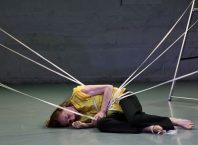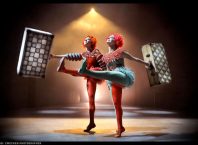The Israel Festival has a unique place in Israeli culture – in its engagement with the arts, it reflects the changes in the Israeli reality. Traditionally, the festival takes place in Jerusalem, yet, in this year that has been, and continues to be so painful, the festival will first open from September 10 – 13, in communities of the Gaza Envelope – Sderot, Ofakim, Kibbutz Dorot, and Eshkol Regional Council – before continuing to Jerusalem from September 17 – 27, 2024. The full festival program and ticket information is available on the Israel Festival website.
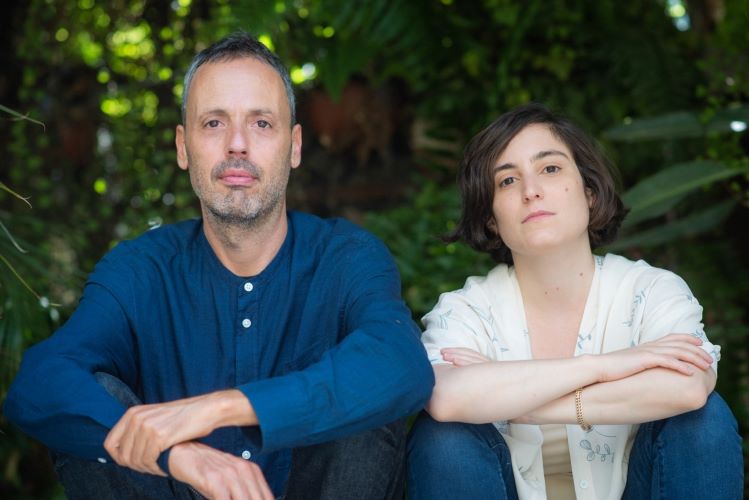
Artistic directors Itay Mautner and Michal Vaknin share that “It was clear to us that the festival could not remain, as usual, only in Jerusalem. The heart sought to roam the land, to join the community and the artists. This year, the Israel Festival will open in the Western Negev: in the Eshkol Regional Council, Ofakim, Kibbutz Dorot and Sderot. Over the last months we worked alongside artists, producers, cultural managers and residents from the southern communities to compile an artistic program that stems from what happened and is still happening in the region – It is an attempt destined for failure, because it is impossible to truly capture. However, out of this pursuit, we present our program, specially curated for the residents of the south, and for us all.
This is the beating of our broken heart, our wish to create a different reality here. This is our layer in the struggle for this place we call home. We want to deal with reality, while soaring. To do what art and creation know so well to do – to create a space where complexity, multi-faceted thought, and imagination can coexist one-fold. The selected works reflect all these thoughts, explore them, reflect them, process them, offer different readings of this reality.”
According to the Festival Director, Eyal Sher, “With the war still raging, the hostages not yet returned, the unbearable loss and immense physical and mental challenges still ahead, we struggled with the dissonance between the very essence of the word “festival” and the harsh reality we are living. We produced the festival out of a deep belief in the role and the unique ability of art to contribute to the healing and recovery processes, and to imagine a space of dreams and hope for a shared future. The festival is closer and more intimate, dealing with wounds and traumas, providing a direct look at the reality in which we operate.”
Opening night will take place in Sderot on Tuesday September 10 from 19.00 -22.00. The program will be composed of three parts: the opening of Windless, a sound installation by the artist Yaniv Schenzer, “7 Boom” premiere of a dance piece by Liat Dror and “Yelala” – musical performance.
Windless
For several months now, the artist Yaniv Schenzer has been collecting remnants of rockets fired at Israel. What he finds, he takes to his studio, and carries out a transformative act on these pieces of metal – from weapons, they become musical instruments. Shenzer, an artist working between Jerusalem and Europe, has created a series of wind chimes all made of rocket remnants. The installation will be held in Sderot, in the “Adama” dance studio. The exhibition will also be open on the days after the opening night. (11.9 16:00-19:00 , 12.9 16:00-19:00, 13.9 10:00-14:00 )
“7 Boom” by Liat Dror
When she was a child, Liat played the game 7 Boom. Since October 7 (and much more before that…) The booms have become the soundtrack of the city of Sderot and fill the living spaces of the residents. When it was possible to return to Sderot, after many months, Liat began to create a choreographic work that brings the movement together with the place that had been abandoned. A work that examines the instability, the unsafe movement, the lack of a physical, personal and national center. The dancers will move on physio balls – which are usually associated with pregnancy and giving birth. They will test new relationships, seek to find stability in a shaky space and practice how to help each other in precarious situations in order to find a healing anchor.
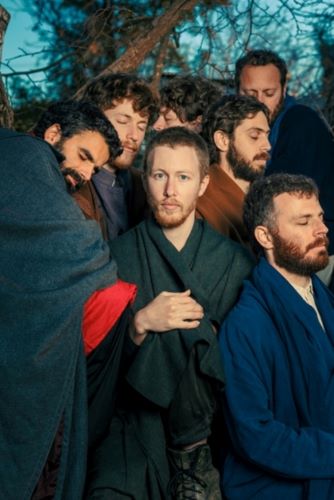
Yelala – A music performance
A group of talented creators, Hayelala, originally from the north of the country, who play, sing and write the various states of consciousness. Hymns that are prayers, songs that are requests, cross-continental influences and above all, a huge talent that ensures that every performance will be different. They come to Sderot, armed with love and diverse musical instruments, for a show that is a ritual meeting between sounds, words and people.
Israel Festival 2024 Program:
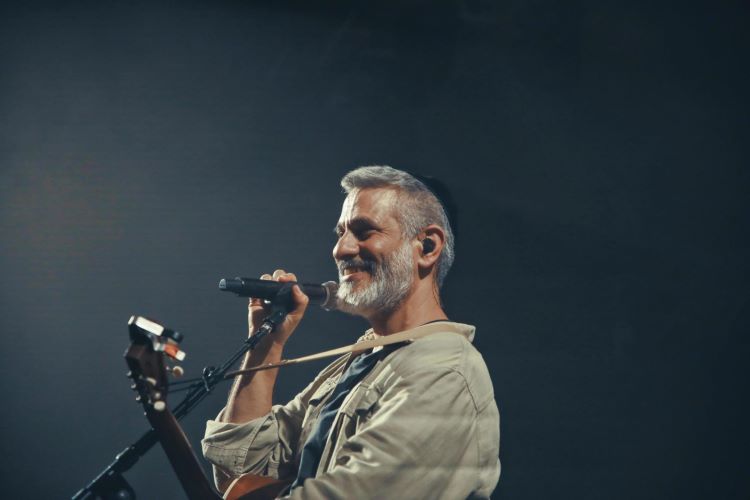
One Day
September 26 at 17:00 – September 27 at 16:00
A multi-participant original production over the course of 24 hours in the Jerusalem Theatre (Sherover Hall) with audience and performers together onstage.
In one day our lives changed forever. One day, life here will be different. (Over the course of) one day, we will all meet on the main stage. It took one day to change us all: our mental state, our worldviews, our topics of conversation, the actions we do each day. It will take much more than one day to restore our confidence, our pain and our fears.
For now, for one day we will all meet on the main stage of the Jerusalem Theatre – audience together with performers: musicians, actors, dancers, speakers, and more. For about 24 hours we’ll be together, without the traditional separation between audience and stage, between viewer and performer. We will examine the places where togetherness is a source of strength, and the moments when it is a thin mask that hides divisions.
Participants: Shlomi Shaban, Noga Friedman, Great Gehenna Choir, Dana Ivgy, Alex Farfuri, Addam Yekutieli, Yaniv Shenzer, Alit Kreiz, Azoulay Policewoman, Eviatar Banai, Adi Helman, Dana Modan and more.
“One day” will be divided into a number of segments throughout the day. The audience will be able to choose whether to join some, or all of them.
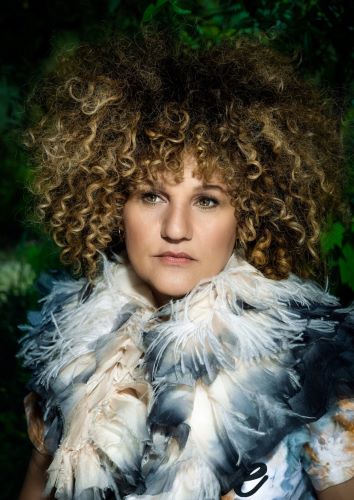
Music People
A show that is the soundtrack of our era
Special premiere for the Israel Festival – Wednesday, 18.9 at 21:00; Kibbutz Dorot – Thursday, 12.9 at 20:30
Berry Sakharof, Marina Maximilian Blumin, Alon Eder, Karolina, and Alma Gov, collaborate with five young and talented creators – Yaara Cohen, Talia Dancyg, Omri Shrif, Agam Jeremy, and Tomi Guedj, from the Western Negev and the North.
On October 8th, Bono, soloist of U2 dedicated their performance to those who were slain, and those who survived the brutal massacre at the Nova Festival. He said, “We sing for our kind of people, music people,” and in that courageous statement, he created common ground for all who were there, all those who came to the performance, all those for whom music flows through their veins.
Music People became the name of a musical social initiative for nurturing talented musicians from the Gaza envelope communities and the North. A special program was created for the Israel Festival with a unique encounter between the musicians from the Gaza envelope communities and the North, and their musical sources of inspiration: Alma Gov, Marina Maximilian, Berry Sakharof, Alon Eder, and Karolina. Their joint ensemble will perform original materials by the young musicians, as well as classics and favorite hit songs of the established musicians. Together, they will attempt to perform the music of this complex time, and let the sounds reach deep, into the emotions, and create space for a different reality.
More Than One Song
Ofakim, Wednesday 11.9, 21:00.
Jerusalem Theatre (Sherover Hall) Tuesday, 17.9, 21:00
Take off your headphones. “One Song”, the excellent podcast from Kan, the Israeli Public Broadcasting Corporation, transforms into a stage show with eight musicians, exciting live performances, rare archival clips and three stories, all woven into one spectacle. In this special stage adaptation, three songs are presented, all born out of personal struggles, that became anthems that accompany our lives here: the wars, the protests, the days of sadness and the moments of hope.
Maya Kosover and Nir Gorali teamed up with musicians Gali Atari, Eli Luzon, Nadav Hollander and others to create a deep, moving and inspiring story about togetherness. This production received enthusiastic reviews and was a huge success among audiences at the 2023 Israel Festival, and is returning to the stage, with a few adjustments following the war.
The show is held in collaboration with the “Kan Broadcasting Corporation” and with the support of the Jerusalem Foundation
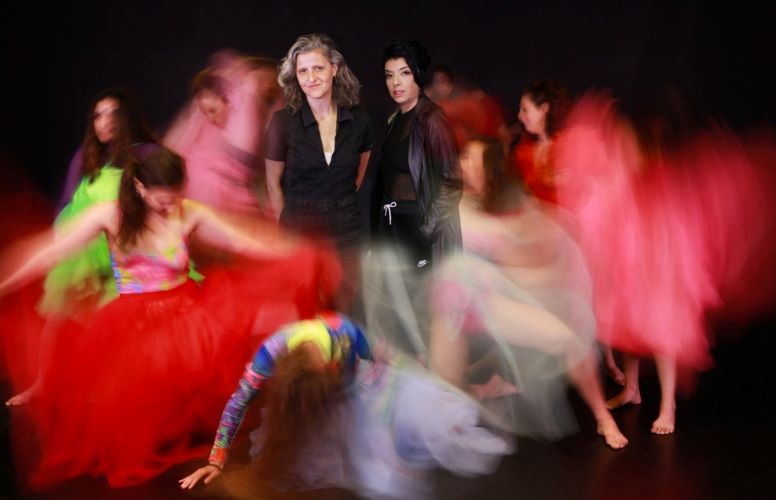
Love Music (Now!)
Yasmeen Godder and Dikla in a joint evening
Sherover Hall, Thursday 19.9, 21:00
“Good morning to those who didn’t have a night”, sang Dikla in her husky voice in 2000, when her canonical album “Love Music” was released. The song took over the radio and became a huge hit. Ever since, Dikla has continued to challenge Israeli music, with her unique mix of influences: starting with classical Arabic music, to electronics and experimental rock. In 2001, the choreographer Yasmeen Godder created “Hall” – a piece in which Dikla performed live with “Good Morning”. Dikla’s nuanced words and Yasmeen’s detailed body language created a fascinating connection, which resonated in the Israeli dance field.
In this year’s festival, 24 years after the release of that album, they meet again: Yasmeen Godder has created an enthralling new dance piece for eight female dancers of different ages and backgrounds; Dikla, equipped with a band of nine musicians, performs the entire album live in a contemporary musical arrangement. Following a three-year long creative process, Love Music (Now!) premiered internationally in June 2024 in Germany.
“Portraits in Motion”
Analog Theatre, connected to the present (Germany)
Jerusalem Theatre (Mikro Hall) Wednesday 18.9, 19:15 + 21:30, Thursday 19.9, 19:15 + 21:30
For years, the German artist Volker Gerling has been taking long walks, meeting people and documenting them. All in the pursuit of personal stories that can teach us something bigger about life, about us, about the world.
In honor of the 2024 Israel Festival, Gerling visited Israel, touring the country and meeting dozens of locals, all connected in one way or another to October 7th. He photographed some of the people he met on his analog camera, and later developed the photographs and manually bound them into a flipbook – a small booklet that can be flipped through quickly. Animation – the analog version. Gerling combines his compassionate gaze, sensitivity and unique humor into an endearing stage performance that tells a story through photographs, allowing for an outside perspective into our most fragile moments. The show takes place with the assistance of the German Embassy in Israel.
A Place to Live
A multidisciplinary theatrical work that stems from the Gaza Envelope
Eshkol Regional Council, Wednesday + Thursday 11-12.9.
Jerusalem Theatre, Wednesday 18.9, 19:00, Thursday 19.9, 19:00 + 21:30
“A home is the place where a person ‘feels at home’, where nothing is foreign to him. Therefore, it is also the proper place to begin the history of being-in-the-world.” [Dr. Boaz Neumann, historian]
What makes a place a home? Where can a person feel at home? What happened to our joint home?
The group of actors and creators of the “Otef HaNegev Theater”, which also includes survivors and evacuees, developed the piece to explore the personal journeys of the residents of the Gaza Envelope. Through WhatsApp messages, first-hand testimonies and personal experiences of the actors, a multi-layered stage piece is created, that includes movement, video and live music. An original production that was born out of that Saturday morning, and seeks to delve into the feelings and thoughts that have accompanied us since then: to take them in, observe them, and look for the way back home.
“Otaf HaNegev Theatre” mainly focuses on documentary theatre. On 7.10 the theatre community experienced tragedies like many around it. Since that Saturday, the theatre team has been working with the residents of the Envelope in workshops, writing sessions and various plays as a tool to try to heal the soul a little. “A place to live” is a layered stage adaptation of the testimonies that resulted from this process.
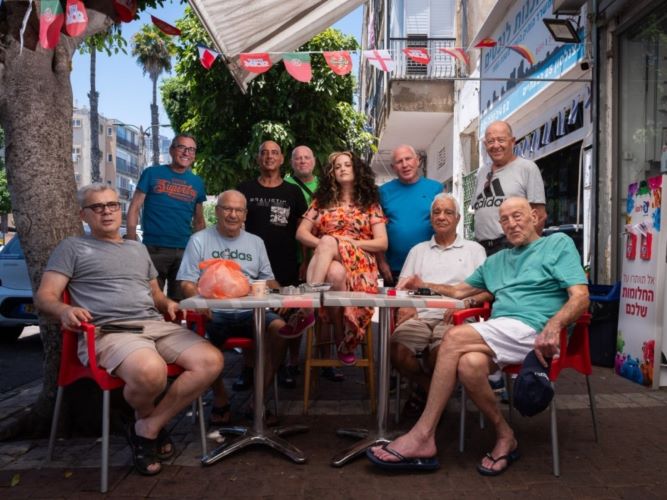
100 Men
A cinematic stroll on the stage
Jerusalem Theatre (Mikro Hall) 26.9 Thursday 19.00, 27.9 Friday, 12.30.
A widowed florist, a retired womanizer, an aging Russian DJ, a crooked fisherman, a man who lost his memories… These are just some of the 99 men that filmmaker Hadas Neumann has been documenting for a year. She walks around her childhood neighborhood in Givatayim, allows herself to get lost in front of the older men, all whilst looking for one man in particular – her father, a resident of the neighborhood, with whom she is forbidden to meet. Getting to know these other men who are her father’s age, who open their hearts, their apartment and the plot of their lives to her, reveals to Hadas something about local patriarchy, loneliness, regret, love, compassion and fatherhood.
In a show that moves between film and stage, between drama and humor, Hadas seeks to deal with the constant absence.
On an almost empty stage, a single walker stands under a beam of light. She starts walking, and for about an hour, doesn’t stop. Through a combination of video projection, live narration and performative actions, Hadas takes the audience with her on a journey through the paths of her life in an attempt to find, in the end, the 100th man.
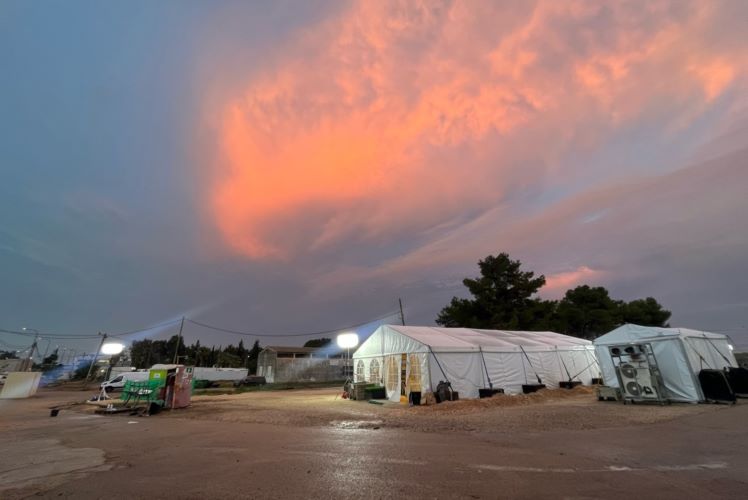
Shura – Craft of life identification
A play based on reality
Jerusalem Theatre (Rebecca Crowne Hall), Thursday 26.9, 20:30
Reservist and playwright Roee Joseph spent sixty days in Shura military base, somewhere in the center of the country. For sixty days, he partook in one of the most complex tasks known to the human mind – identifying victims of a massacre.
For long hours, Roee and the other soldiers recruited for the mission looked for any identifying marks that would facilitate recognition of the dead and allow burial. On his breaks, Roee took out his computer, and began writing. He wrote what he saw, heard, experienced: thoughts, moments that had unfolded before his eyes, an exact transcription of what was said around him, and spontaneous interviews with the ones who were there.
Shura is a deep, poetic, honest and sometimes funny observation about hardship. Shura understands that in order to bury something you need to know what it is. Shura is a brave and exposed attempt to allow us all to understand what was there, and, perhaps, to put it to proper rest. (Original production, in collaboration with the Tmuna Theater).
Never-ending Mourning
A fable about the wondrous and endless movement of grief
Jerusalem (Rebecca Crowne Hall) Wednesday 18.9, 21:00. Thursday 19.9, 19:00 + 21:30.
One bright day, when Nurit was a little girl, her mother died. Over the years, her loss appeared in countless human encounters, but remained private, making her feel isolated from others.
In her work, Nurit has meticulously retraced key characters from her personal story of loss, and invited them to join her on stage, and to tell their own story. With a unique artistic language and the ability to look at the most complex aspects of life with humour, Nurit breaks the wall of loneliness that comes with grief, and tries to weave a bigger story, one that connects all the women on stage. An orchestra of stories unfolds, as does the possibility that grief, like life itself, is always in motion.
Living with What We Have
A special meeting with Rabbi Delphine Horvilleur, Chaya Gilboa and Sivan Talmor
Rabbi Delphine Horvilleur is one of the most influential and important figures in contemporary Jewish-cultural discourse. Her books, publications, plays and writings are published frequently and are a central anchor in the formulation of contemporary Judaism. Her book “Living With Our Dead” became a bestseller and was translated into several languages. The book brings to the front one of the central themes in the thoughts of many – dealing with loss while relying on Jewish sources. Delphine’s abilities to conceptualize ancient Jewish concepts, along with her ability to look death straight in the eyes, gives her a unique status in the world.
In honor of the Israel Festival, Delphine comes to a personal musical meeting around the presence of loss in our lives. The meeting will be led by Chaya Gilboa – a teacher, activist and someone for whom Jewish origins are a ground for action. Sivan Talmor, a creator and musician with a vast range of emotions, will accompany the meeting with original songs and special performances of well-known songs.
The festival is held under the leadership of Eyal Sher, Festival Director and the artistic management of Itai Mautner and Michal Vaknin. Adv. Inbar Afek serves as Chair of the Board.
Aiming for wide and varied audiences, the festival continues its reasonable ticket pricing, with tickets ranging between 95-145 NIS and many benefits for senior citizens, students, soldiers, holders of a Jerusalem card, credit card promotions, customer clubs, etc. A special donation from the MEI Law office, will grant entry to the festival performances in the South at just 10NIS.
The festival is supported by the Ministry of Culture, the Jerusalem Municipality, the Jerusalem Foundation, The Israeli Lottery, foreign embassies and cultural institutions, public and private foundations. The festival’s activities in the south were made possible thanks to the support of the Bracha Foundation and the Israel Lottery. A contribution from the MEI Law office enables entry to performances in the south for only 10 NIS.
*Information on the festival and texts were provided by the Israel Festival and lightly edited for clarity.



